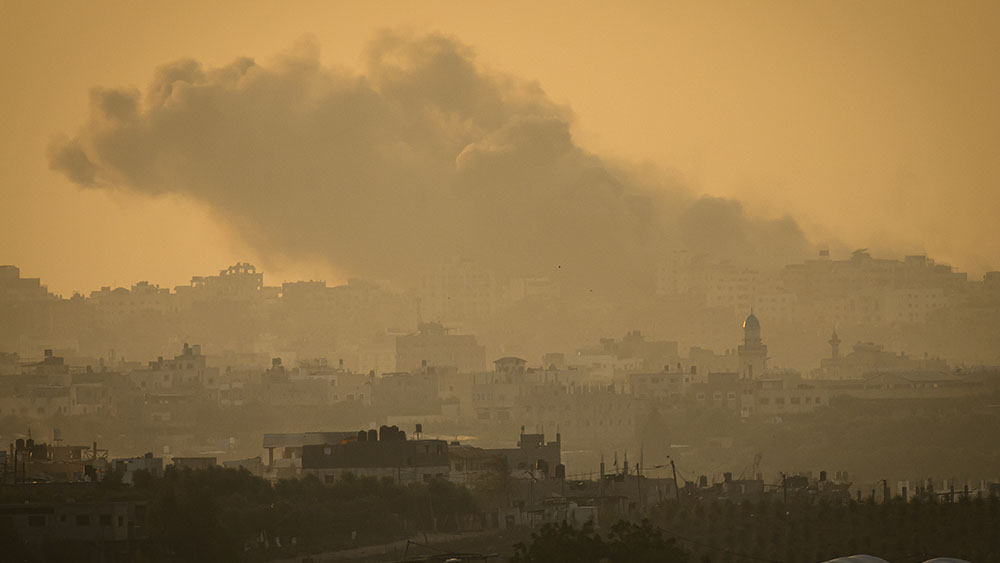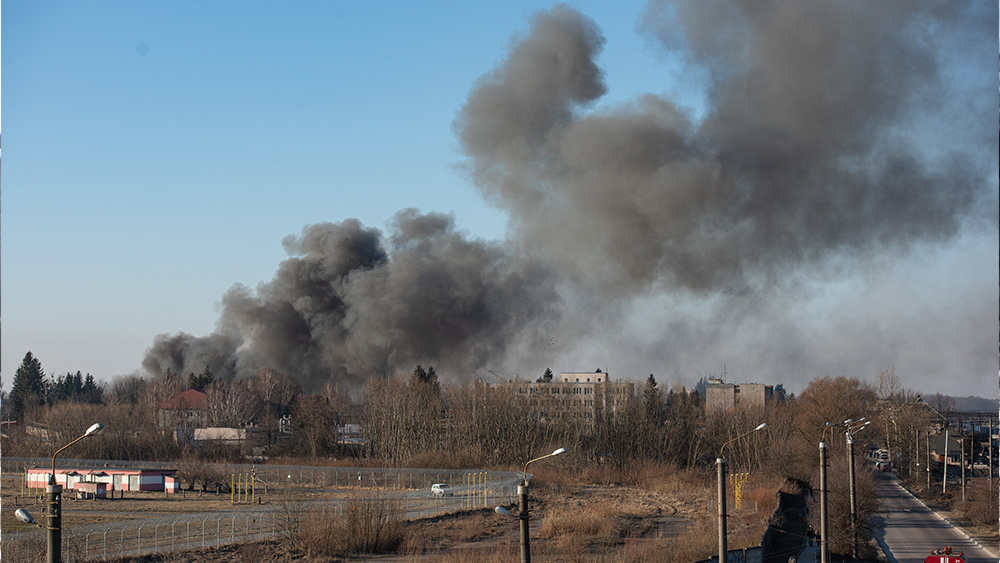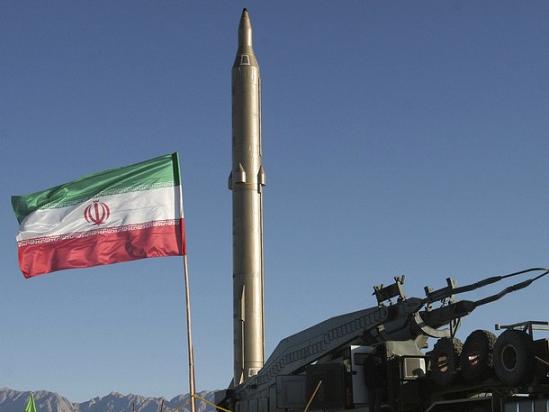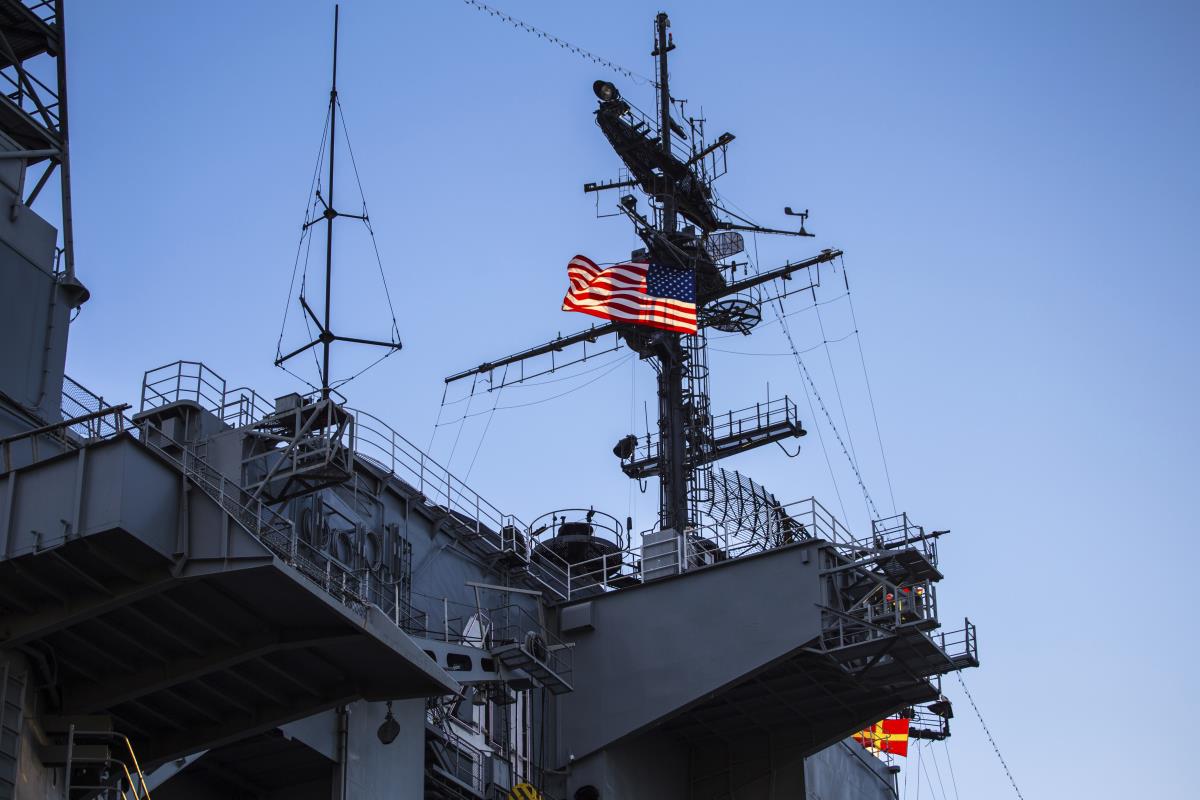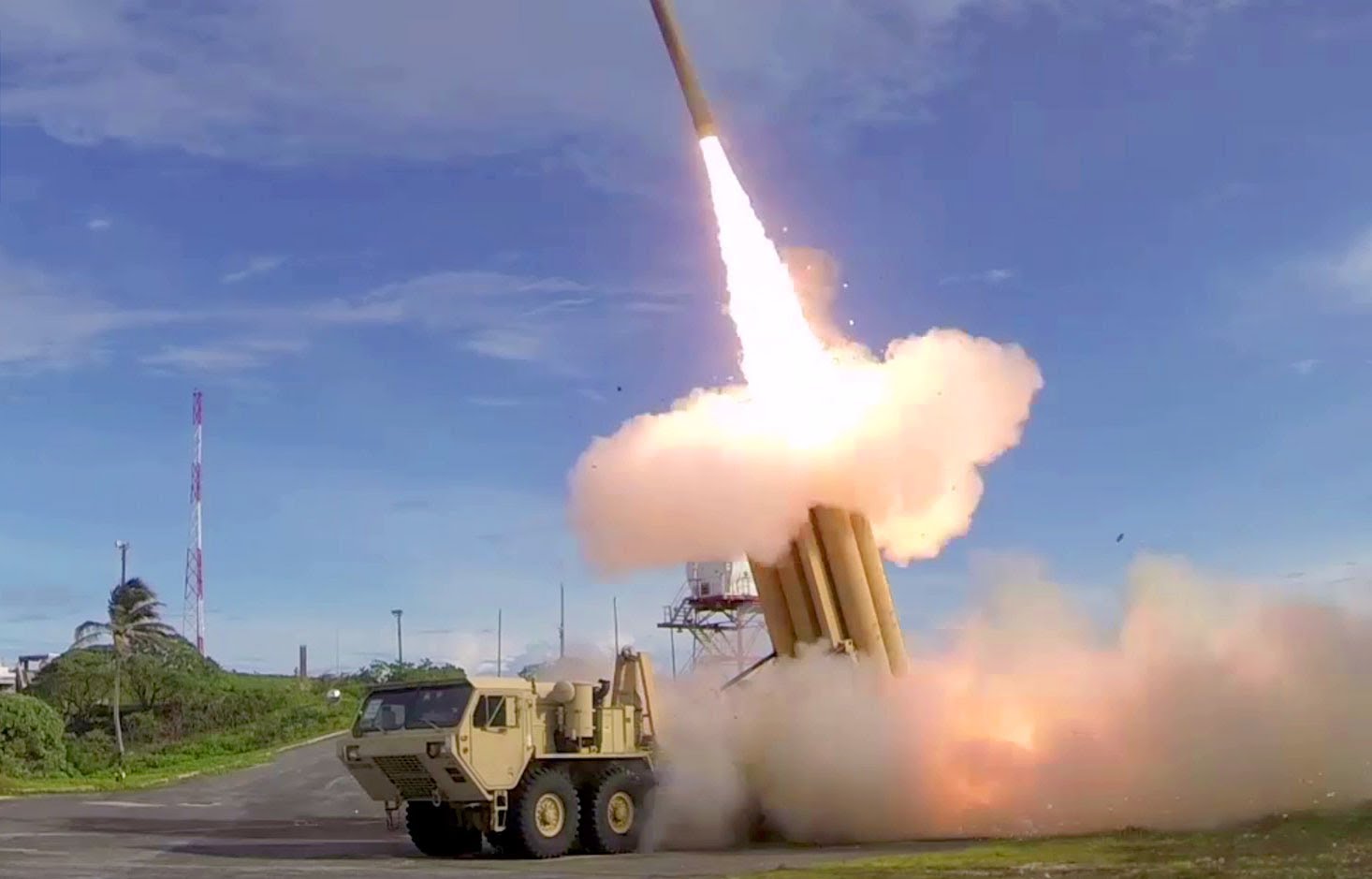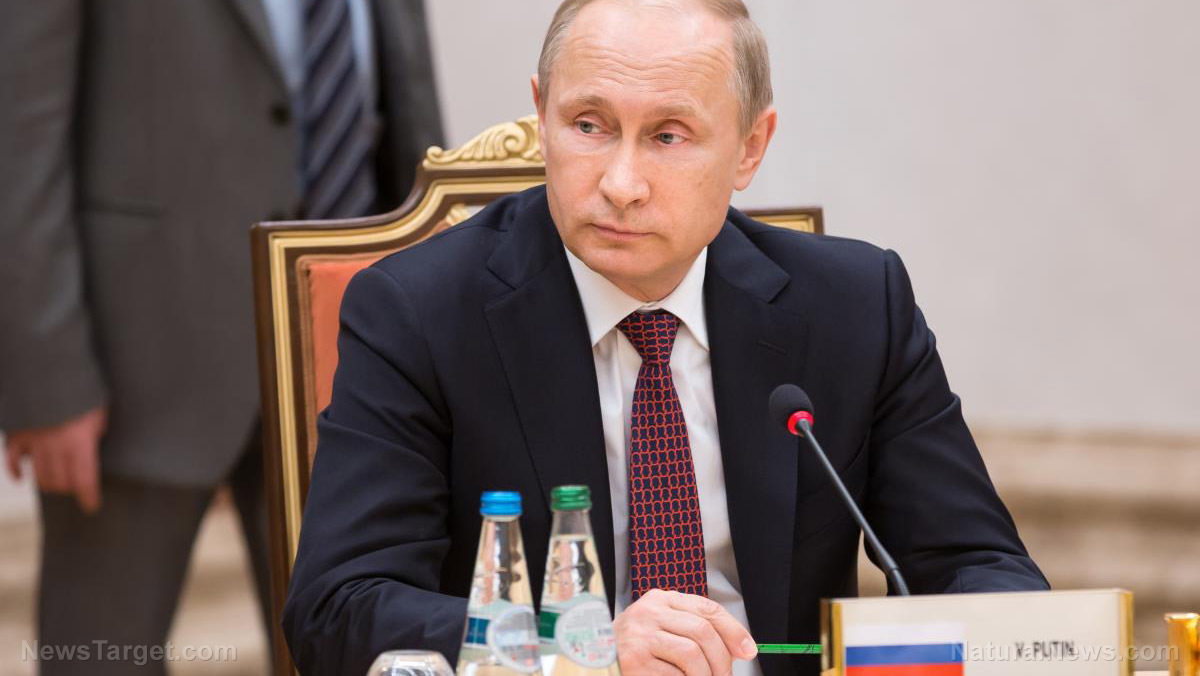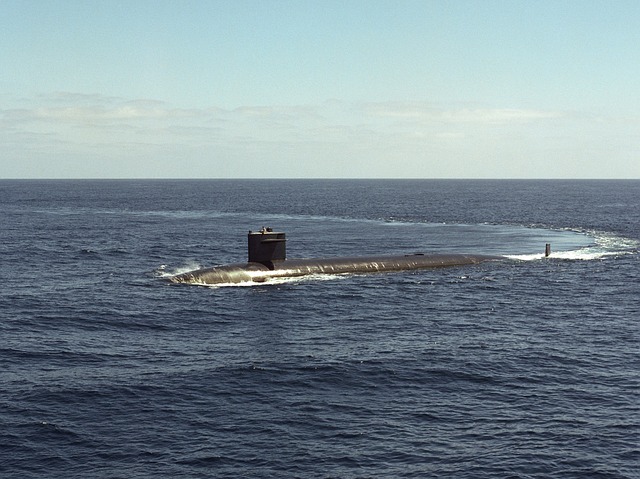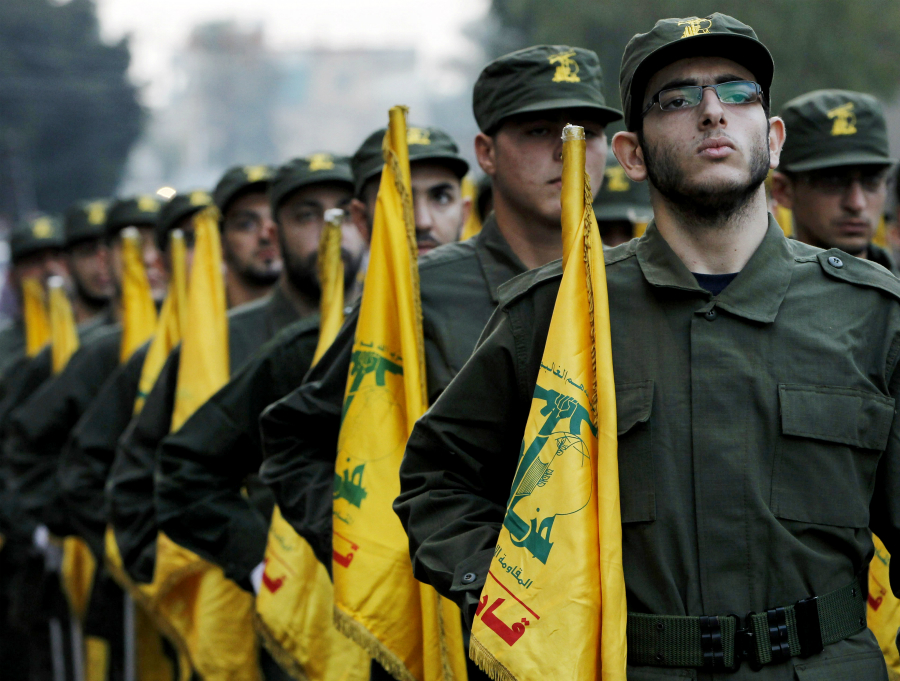Ongoing INTERNATIONAL CONFLICTS spark worries about Pentagon’s worsening military weapons and munitions shortages
11/13/2023 / By Zoey Sky
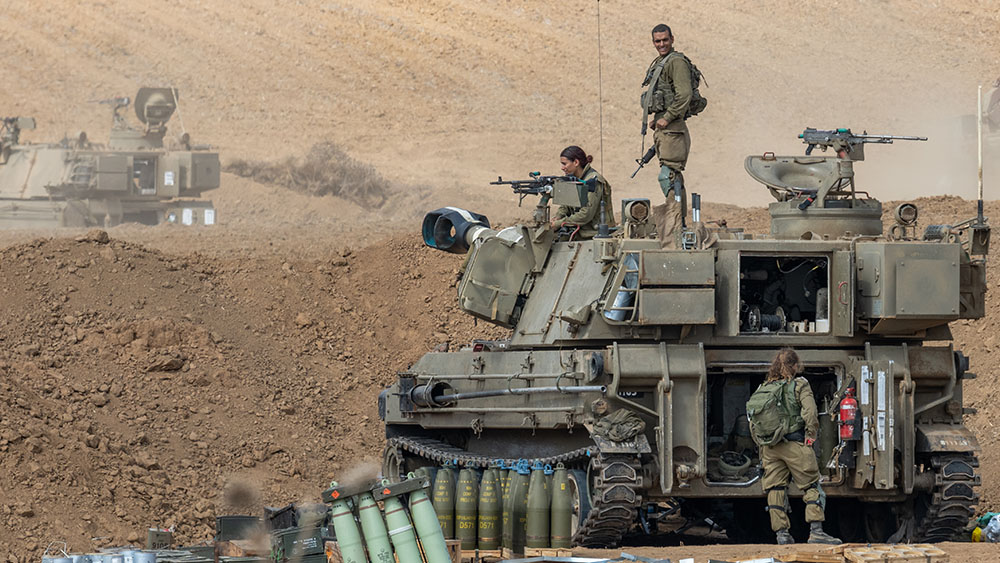
Western defense officials have expressed concerns that with Israel going to war at the same time the West is battling Russia by proxy in Ukraine, there won’t be enough artillery shells and other weapons left to help both allies amid ongoing conflicts.
Planners at the North Atlantic Treaty Organization (NATO) are also worried even though Israel isn’t a member of the alliance.
NATO and its European members are deeply invested in supporting Ukraine against the Russian invasion, and the prospect of two fierce wars eventually depleting arms and equipment from the same stockpiles or supply chains is starting to alarm officials.
Goran Martensson, the director general of the Swedish Defense Materiel Administration, which handles procurement for the country’s defense ministry, said it is normal to have concerns about “competition for military resources because of limited production capacity.”
He warned that there will be “more need for that limited production capacity in Europe and the United States.” Martensson spoke on the sidelines of the NATO Industry Forum, an occasional event that involves government officials, military brass and industry executives that drew more than 800 attendees.
Sweden hosted the meeting as a candidate for NATO membership and hopes to become a full member soon.
Early in 2023, Turkish President Recep Tayyip Erdogan agreed to forward Sweden’s bid to join the NATO military alliance to the unicameral Turkish Grand National Assembly. It followed months of drama over an issue that had strained the bloc as war raged in Ukraine.
Both Sweden and Finland applied for NATO membership in 2022, finally ending their policies of military non-alignment that had lasted through the decades of the Cold War because of Russia’s invasion of Ukraine.
After Russia launched its large-scale invasion of Ukraine several months ago, defense contractors throughout the West have increased production. However, output remains below the volumes of ammunition and equipment being spent on Ukraine’s battlefields.
NATO Secretary-General Jens Stoltenberg warned the forum that member countries’ defense industries lack adequate spare capacity to react to the ongoing crises. He added that more is needed to ensure that production can meet the demand.
Everything is connected: If Israel receives its weapons from the U.S. stockpiles, they’re “taken away from something”
Esa Rautalinko, chief executive of Finnish armaments group Patria, said many companies are already producing as much as they can within their existing production facilities. The next step would be new investments, but he added that bringing new facilities online can take at least two to five years.
According to Rautalinko, pressure from the Middle East conflict hasn’t yet filtered through to Europe’s defense-industry debates, which adds to the uncertainty. Additionally, Europeans might think of the fight as more of an issue for Israel and the U.S., but he advised that would be a mistake.
Rautalinko explained that everything is connected. If Israel receives its weapons from the U.S. stockpiles, they’re “taken away from something,” said Rautalinko.
And as demand increases faster than production, prices of some supplies have soared. At the NATO forum, Dutch Admiral Rob Bauer, Stoltenberg’s top military adviser, said that NATO-standard 155-millimeter artillery shells, one of the West’s most basic armaments, had cost governments about $2,100 apiece before Russia invaded Ukraine in 2022.
Bauer said the price of those shells, which are “one of the most coveted objects in the world right now,” has increased fourfold to at least $8,400.
Politicians have asked defense companies to expand capacity and accelerate output. In Brussels, Estonian Prime Minister Kaja Kallas said if he were the industry, he would “read the room and increase production.”
Despite the clamor to ramp up production, industry officials are looking for assurances that demand won’t decrease once the conflict ends, which has undercut companies’ investments in the past.
Bauer added that both sides must “loosen the mutually destructive chokehold” and stop waiting for the other to make the first move.
In recent months, the U.S. has started moving by sending billions of dollars into retooled factories to produce more missiles, rockets, rocket motors and shells. Records show that the U.S. has issued almost $25 billion in contracts to arm Ukraine and replenish its stocks.
In recent weeks, Bill LaPlante, the U.S. Department of Defense‘s acquisition chief, has urged European countries to sign more contracts to encourage industry. While European governments have placed some orders, they were not on the Pentagon’s scale. (Related: Pentagon plans to use missile-carrying drone swarm as new weapon of mass destruction.)
Learn more about conflicts between countries around the world at WWIII.news.
Watch this video about Israel deploying direct energy weapons.
This video is from the Diane Sosen channel on Brighteon.com.
More related stories:
World War 3 could be imminent as Israel-Hamas war escalates, experts warn.
Poll: Majority of Americans oppose sending weapons, supplies to Israel.
Sources include:
Submit a correction >>
Tagged Under:
big government, dangerous, Hamas, Israel, Middle East, military tech, military technology, national security, NATO, Palestine, Russia, terrorism, Ukraine, weapons, weapons technology, White House, WWIII
This article may contain statements that reflect the opinion of the author
RECENT NEWS & ARTICLES
COPYRIGHT © 2018 MILITARYTECH.NEWS
All content posted on this site is protected under Free Speech. MilitaryTech.news is not responsible for content written by contributing authors. The information on this site is provided for educational and entertainment purposes only. It is not intended as a substitute for professional advice of any kind. MilitaryTech.news assumes no responsibility for the use or misuse of this material. All trademarks, registered trademarks and service marks mentioned on this site are the property of their respective owners.


